Point and Autobot - Myst, 21 Years Later
By SirOptimusPrime 6 Comments
This didn’t go according to plan. Very few things seem to do that with any regularity in my life, and sadly playing adventure games is another one. I planned on playing Under a Killing Moon in order to prepare somewhat for the new Tex game that’s finishing up production. Did you guess that I didn’t play that game? Because I didn’t. Well, I tried to but no matter what I tried in DOSbox I couldn’t get the thing to run reliably and even when I had it stable for longer than five minutes the first-person controls were so bad I actually couldn’t progress.
I sat staring at the screen hoping something would click, just anything at all. I tried my best, but it was entirely too unwieldy. So I decided to sit down and watch a few duders play Myst for whatever reason and I was, surprisingly, completely suckered into buying that thing immediately. Then, notebook in hand, I sat down to try and demystify everything I’ve ever heard about this legendary point-and-click-and-sleep game.
Sidenote before the main blog - I found out just recently that this game was released on the exact date I was born. No idea why that makes me feel weird, but it does. Also, I could have easily written an entire novella's worth of analysis on this game. Luckily for your time and my sanity, I didn't.
Myst: ~realMyst: Masterpiece EXtended! Remix Love++ HD~
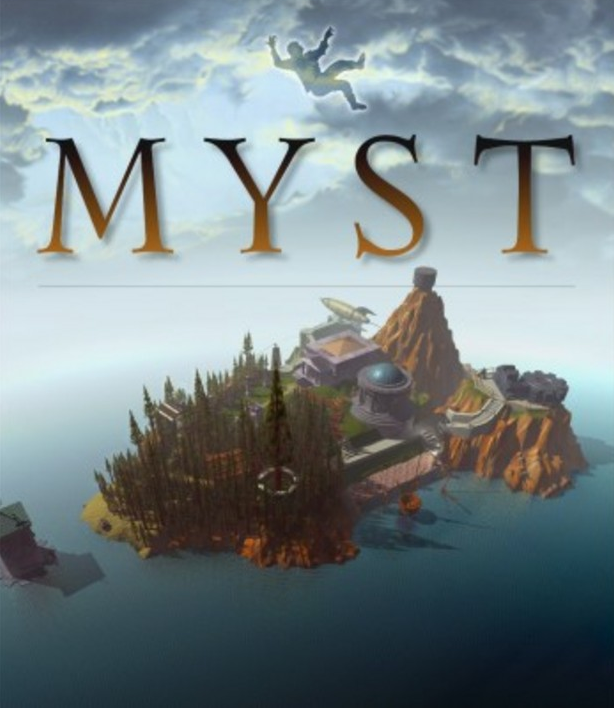
I never knew there were so many rereleases and re-re-releases and ports of this game. GOG had a few and Steam was carrying two (or three? I forget). Because it was $6 I just opted for the realMyst that isn’t being egregiously priced, whatever that meant graphics-wise since I really didn’t care at that point. I just wanted to click the shit out of some books. Unfortunately the version I picked up has muddy textures, insanely loud (and I mean violently loud) mixing, and a strange juxtaposition of 3D movement in a game that was clearly designed for screens. But that didn’t matter. After fixing strange performance issues and dialing that volume knob down about 20 dB, I dug deep into this world ready for some intense atmosphere.
And man is there some serious atmosphere in this game. So much that I’d say the game hinges entirely on it, very nearly to a fault. The claims of “not doing anything” aren’t entirely unfounded, especially if you’re the kind of person that categorizes reading as a non-activity. When I stepped onto Myst Island, just before I sat there deciding which mystery/mysterious/myst-word pun I liked best, I had no clue what to expect. I had a few pages left in my lab notebook that were going unused and my pencil at hand, but I still didn’t realize just how much of this game relies on that exact process.
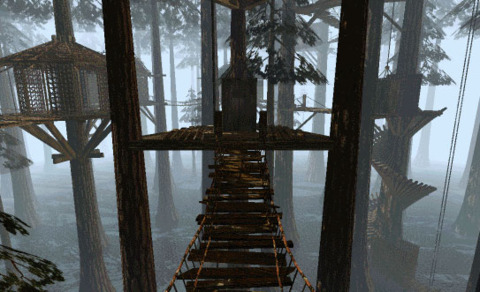
In Myst you control a Stranger who finds the book - a linking book as they’re called - that leads him to the eponymous island. There was a note on the ground and from there, I kinda had no clue what to do. So I just read everything I could click on or see, wrote as much down that seemed important, and focused on using the central library structure often. The initial books weren’t of any help to me, most of them describing fantastical worlds I imagined were going to be important as some point in time and two others inhabited by guys who seemed both a) insane and b) manipulative. Every machination was slightly related to something else and seemed to connect to an obvious landmark on the island, such as the clocktower in the sea to the gigantic gears or the power station to the ship.
Then I found out the inner-workings of the tower rotation and just what the hell it was even for. After that it all started to roll out nicely, with each readable book among the burned ones describing some outrageous land that the author seemingly created himself. I soon figured out that the two people in the red and blue books were the sons, Sirrus and Achenar, that the author speaks of during his travels. Despite some glaring grammatical issues and strange diction, I was completely enthralled by these descriptions in the hope that I’d visit the same ones. The first book, the book of the Channelwood age, described a beautiful series of treetop villages and the people that lived there with a stronger sense of character than any game I’ve played in the last decade. Atrus, the author of these books, is revered by the tree-dwellers and immerses himself in their culture. Then his writing started changing color, to which my adventure game instincts responded immediately by noting the pattern of colors. To my surprise this isn’t used at all: it was a practical joke played by the tree-dwellers on Atrus. They gave him ink that would change colors over time.
Clearly the great tree planted randomly on the island was connected to this age. It had to be. After working out how exactly to get there, I was excited to see this culture and civilization for myself.
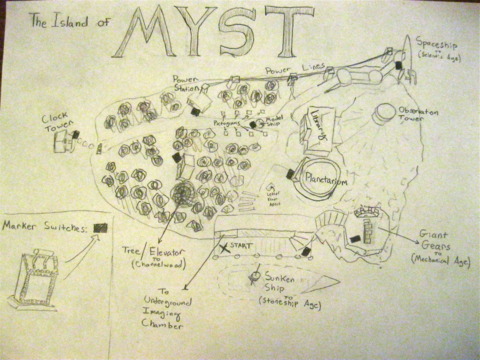
I found empty huts and broken platforms. Waterlines destroyed, windmills stopped, and elevators malfunctioning. Everything in the Channelwood age of Myst’s present was broken and deserted. No soul in sight, only books and a few red and blue pages scattered around. Aside from the rather simple puzzle, this age was purely atmosphere and feeling for me. I had learned so much about these people that I couldn’t wait to engross myself, but that wasn’t what was there. The feeling of displacement, of removal, left me wondering about the children that Atrus spoke so highly of. The same children trapped in those mysterious books.
This sums up the entire Myst experience for me: read book on age, write down clues in that context that help you understand a bit about the central puzzle, then go there to retrieve pages. Repeat. When laid out like that, it just sounds like busywork and total boredom. But it’s a real treat to experience, especially the Stoneship and Channelwood ages. Within the game’s human story of familial betrayal set to the backdrop of otherworldly magic and creationism, these places told stories of isolation, power’s natural entitlement, and how that power can ruin entire civilizations in the name of personal gain. Many video game stories tell that, but few of them show you this. It’s rare that a game will show you the madman conqueror's throneroom without some climactic battle, and discovering over time that his interests changed from mere study to torture and mutilation.Well, horror games would but the gore would be the point there. In Myst, Achenar’s acts are connected to people and cultures that leave distinct impressions on you when you read about them. There's likely entire essays written on this game's themes and for good reason. You see the ruins of those peoples, and sometimes the ruins of the brothers’ wake, but are always left to walk through deserted corridors and rooms.
Yes, I imagine there was a technical reason behind this but the game fares so much better because of it. You’re left, alone in each of these worlds, diligently taking note of your surroundings and the few key points to interact with. From that you research the intrinsic logics and properties of the world’s puzzle, gathering everything until you can piece it all together and return to Myst. And that, for me, was a blast. There were definitely times when the backtracking was a slog, but for the most part it was easy to navigate areas after the primary puzzle was solved. Except for the Selentic Age. That one can fuck right off with it’s inane maze puzzle that requires you to differentiate arbitrary honks and hoots in order to pass through it. I managed to finish the maze in one go but at no point did I have any feedback about whether or not the path I’d taken was working.
I don’t want to spoil too much about this game’s puzzles or story conclusions, mostly because I feel like they should be experienced personally. The only puzzles that require anything resembling inane, adventure game babble-logic can be counted on one hand - in a game with only eight or nine puzzles to be fair. If you’re willing to crack your binder open, sharpen your pencil, and write down a lot of notes (and I mean a lot; I had 11 pages of a full-sized notebook completely jam packed full) then Myst will be an absolute blast to go through. Even for the first time today, as I did.
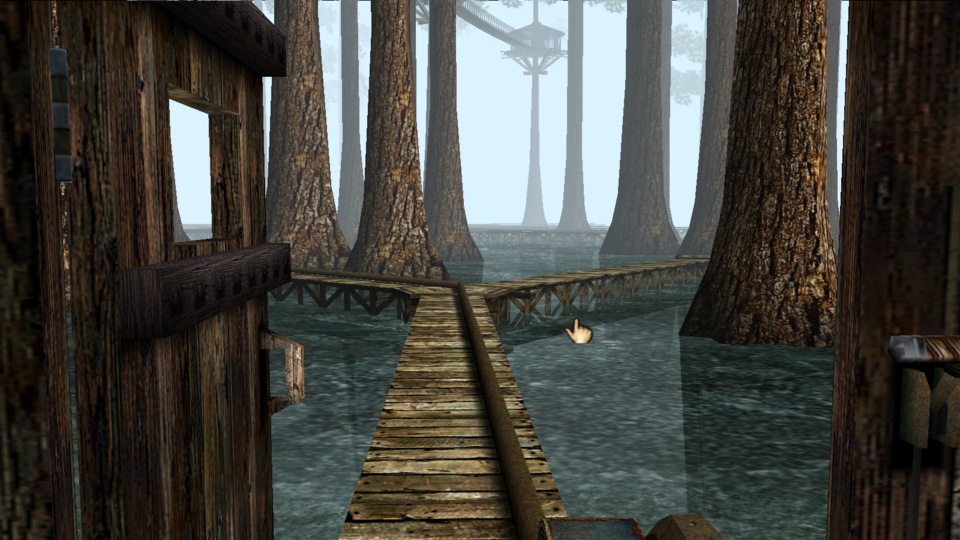
As for what's after this one, it's still up in the air. I have Riven: the Sequelest Next-Game in the Myst Quintology eyed up, but I don’t know if I want to immediately jump into another adventure game of this caliber. I don't think my wrist can take it anymore. The Quest for Glory games are sitting on my hard-drive, the third Gabe Knight game was an instant purchase at a discount, and there’s the always the possibility of testing out UAKM again… or maybe I’ll play System Shock 1. Who the hell knows, because I really don’t.
P.S. Man, tagging blogs to game forums being broken makes me way too sad.

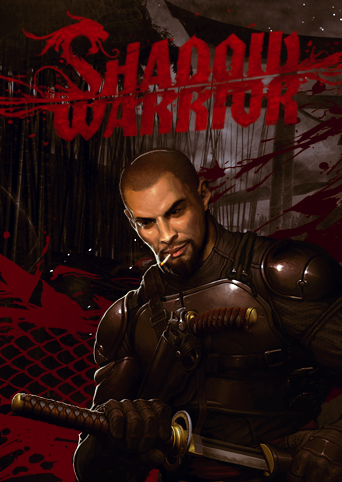
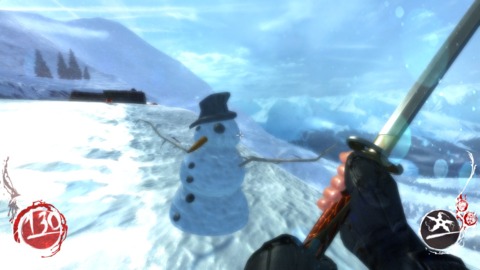
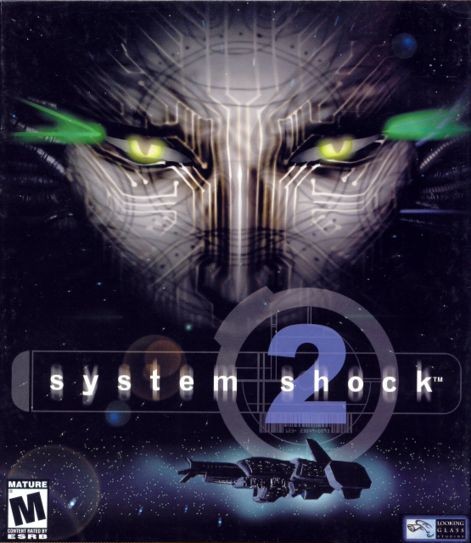
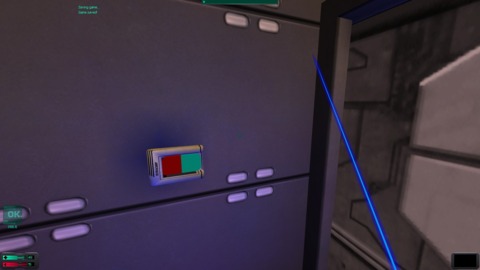

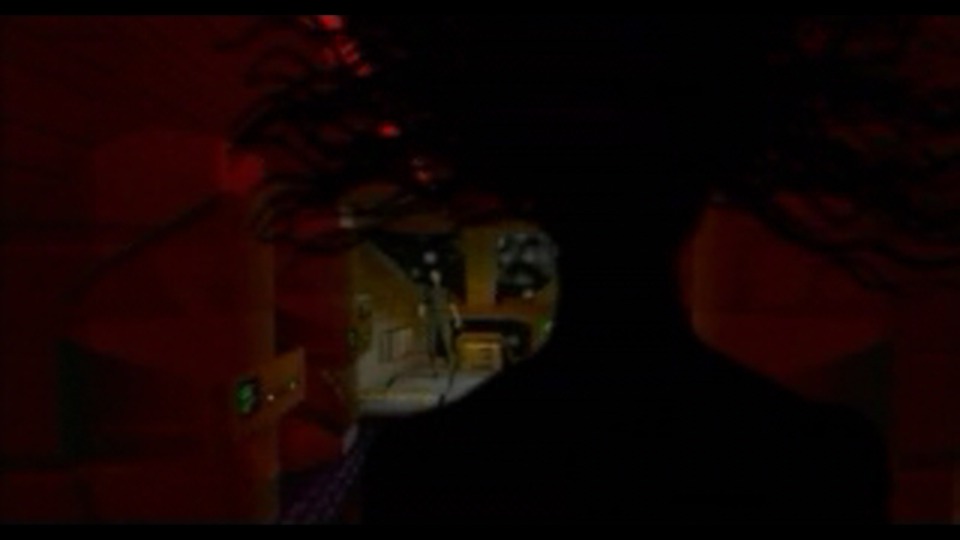
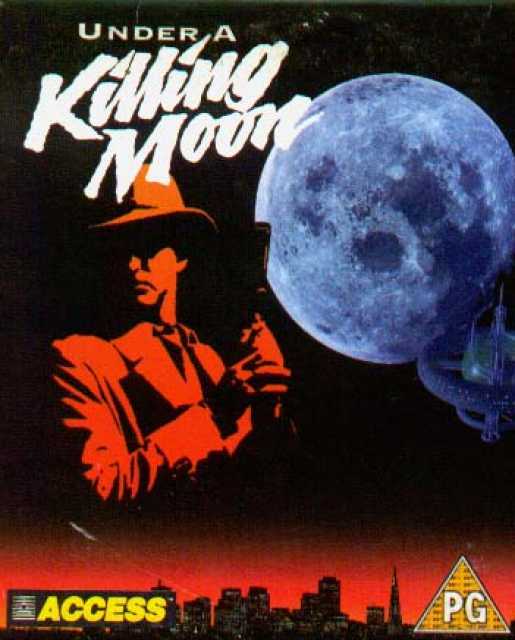
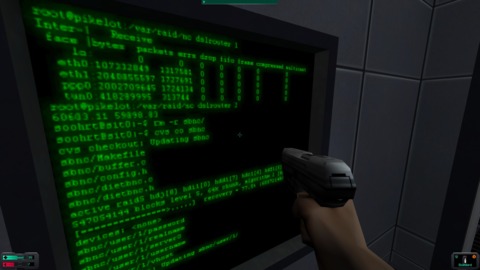
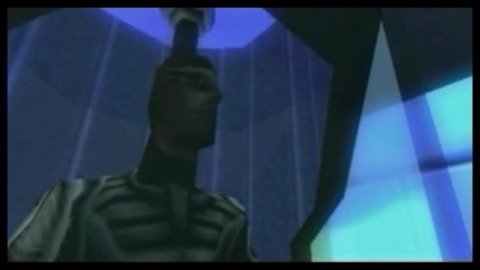
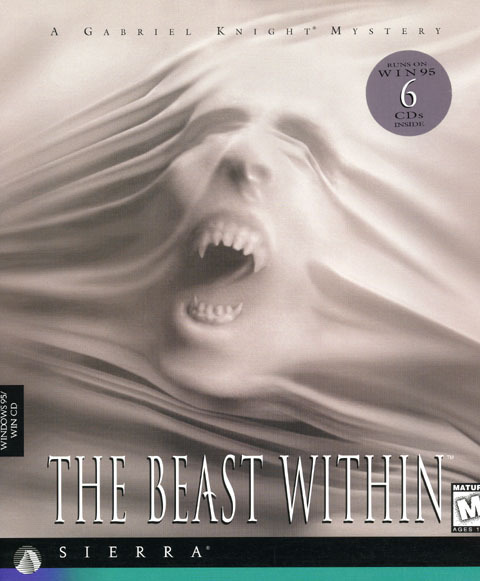
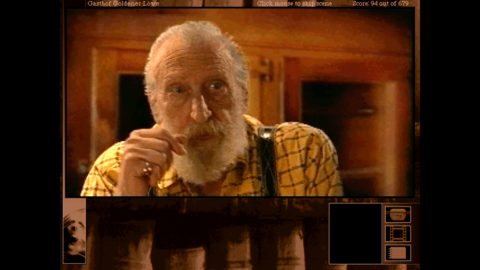

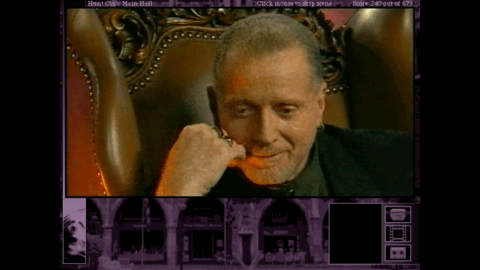
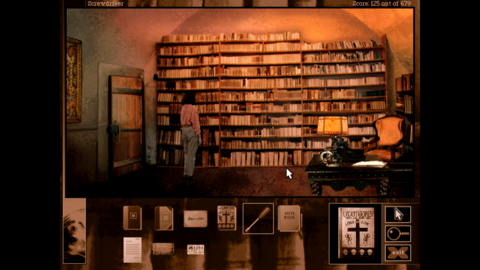
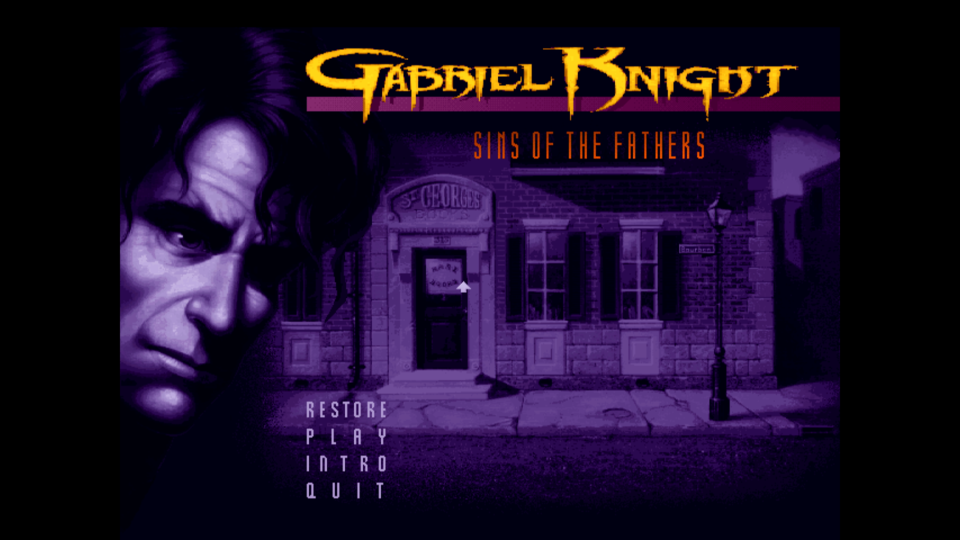

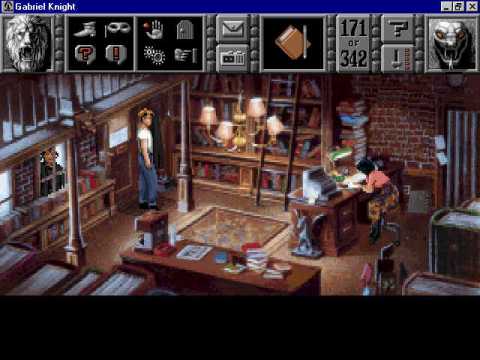
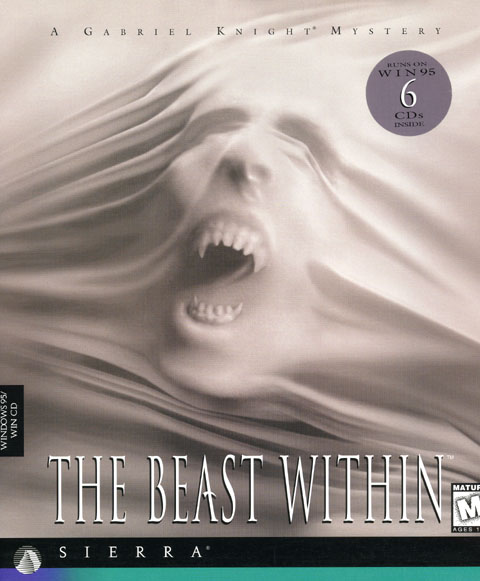
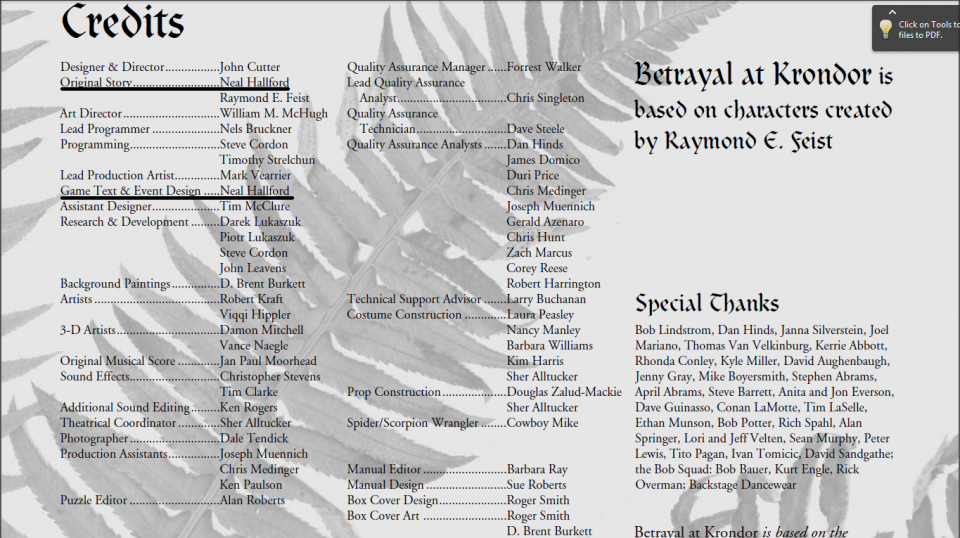
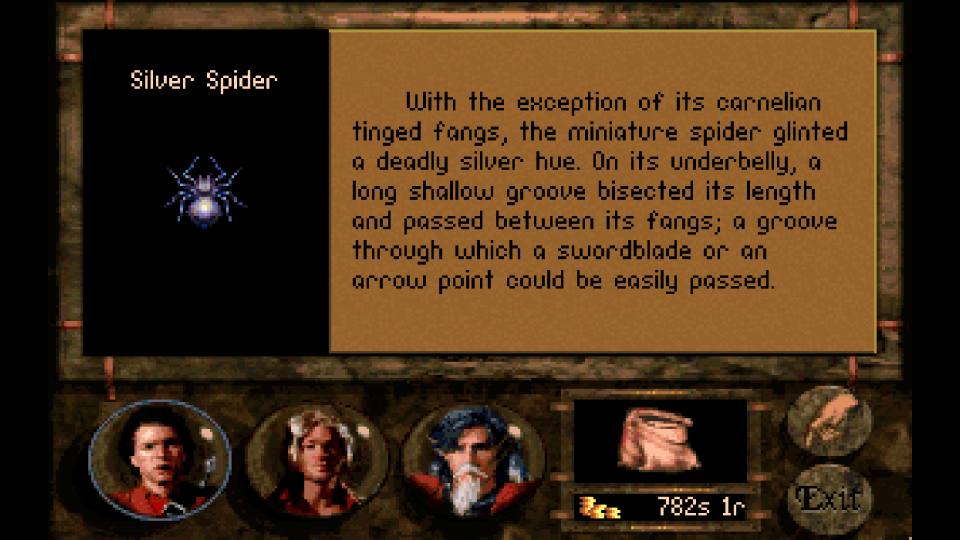
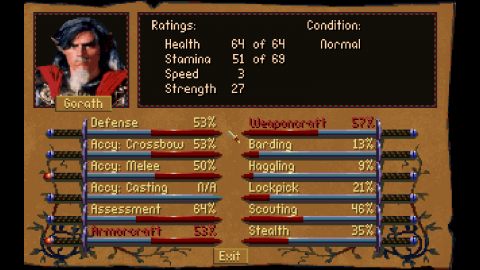
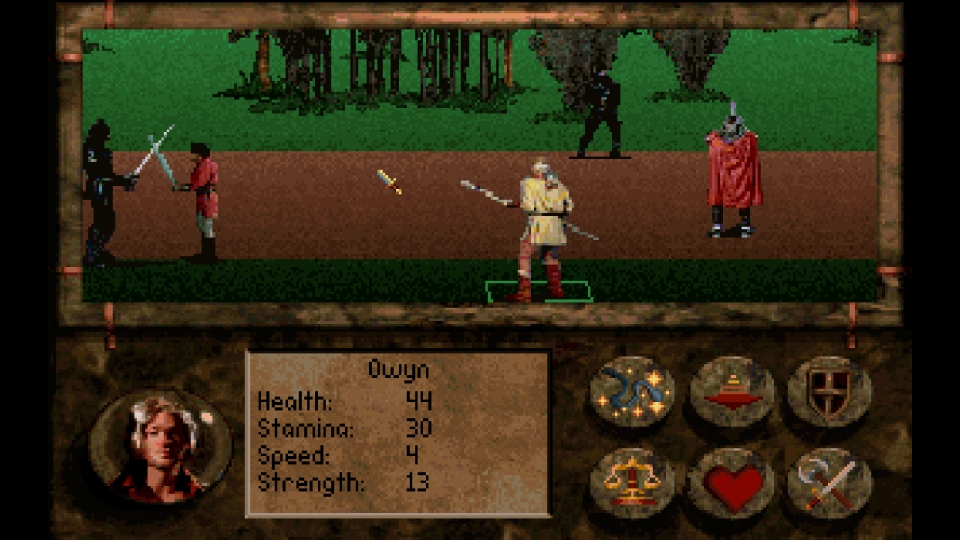
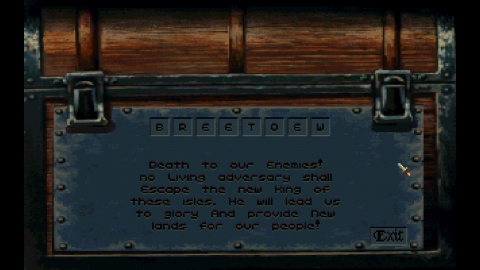

Log in to comment